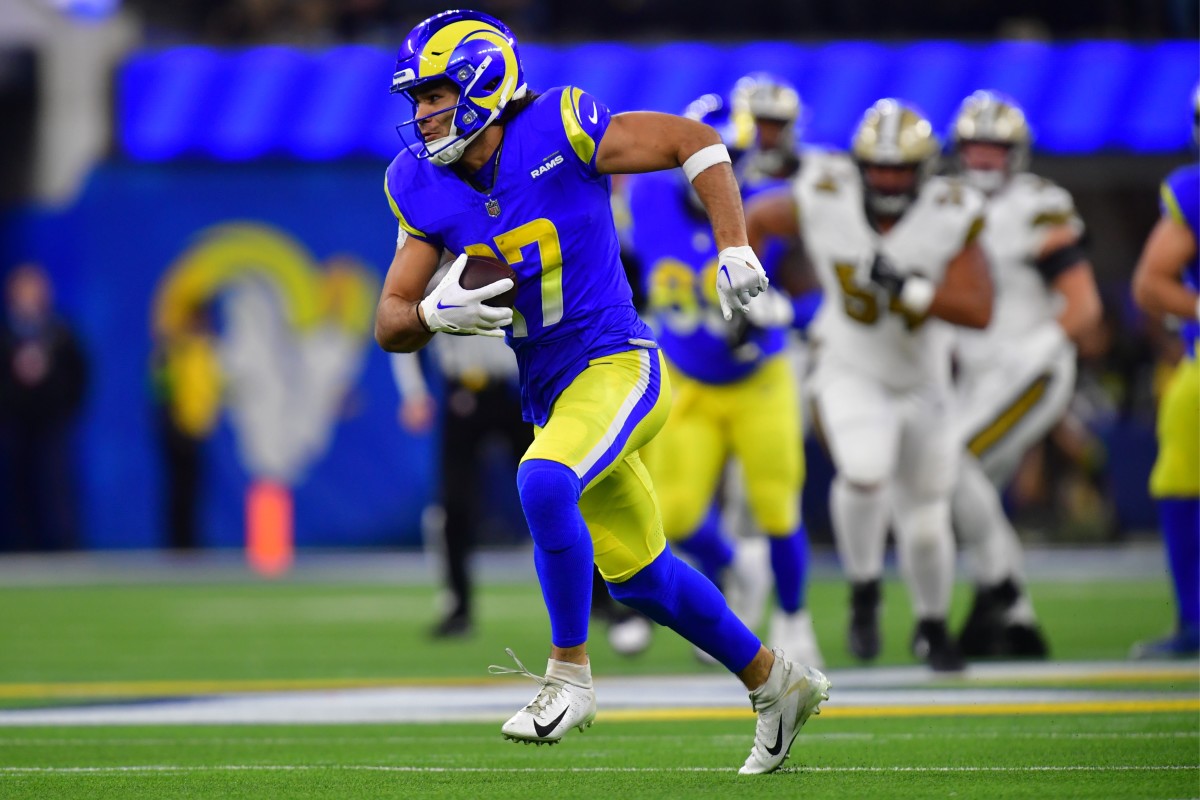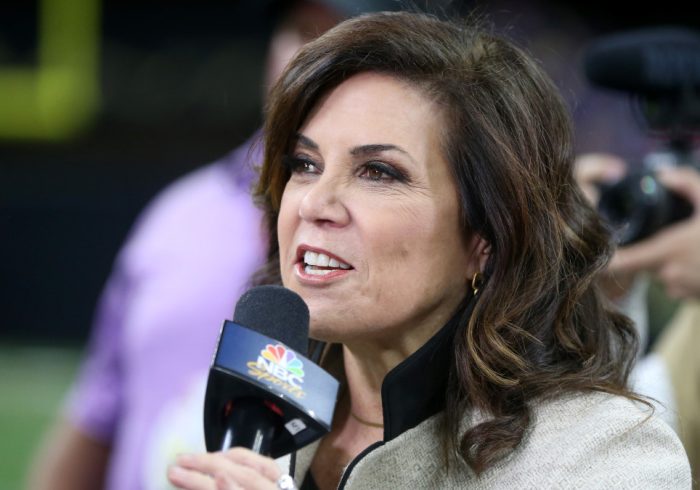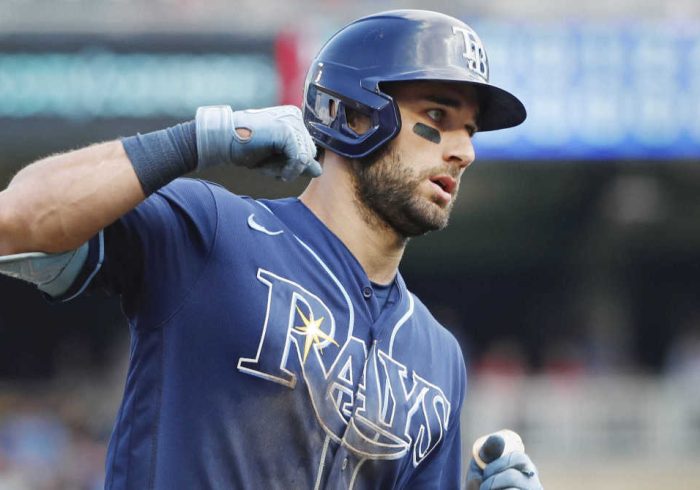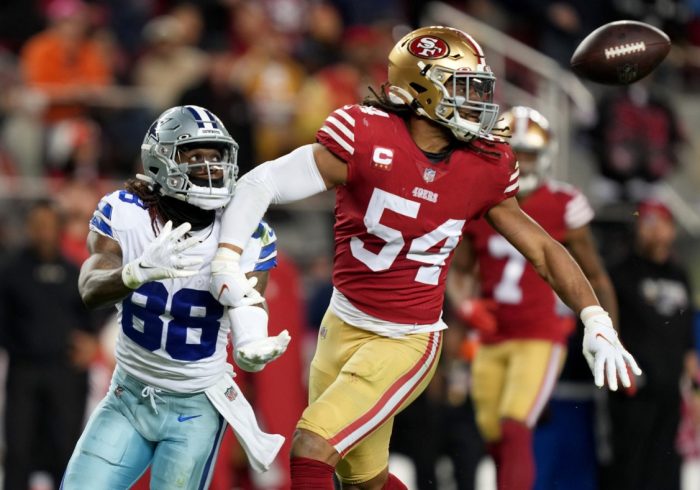Good morning, I’m Dan Gartland. Just a quick programming note: There will be no SI:AM on Monday or Tuesday. I’ll be back Wednesday. Enjoy your holiday weekend.
In today’s SI:AM:
👋 FSU’s potential ACC departure
😔 Another loss for the Pistons
The rich get richer
The Dodgers are building a superteam.
After landing the biggest free agent available earlier this month when they signed Shohei Ohtani away from the crosstown Angels, they’ve now added the second biggest target on the market, Japanese pitcher Yoshinobu Yamamoto.
Late last night, Yamamoto agreed to a 12-year contract with Los Angeles worth $325 million, according to multiple reports. That’s the largest guarantee given to a pitcher in MLB history, just narrowly eclipsing the $324 million over nine years that Gerrit Cole got from the Yankees.
Once Ohtani signed, all eyes turned toward Yamamoto, who was pursued by numerous teams. The Yankees, Mets and Giants were considered contenders. The Yankees offered Yamamoto $300 million over 10 years, while the Mets matched the Dodgers’ 12-year, $325 million offer, SNY’s Andy Martino reports. The Phillies and Red Sox also reportedly made offers.
Yamamoto might not be a name familiar to many American fans, but his massive contract should come as no surprise. He is considered perhaps the best pitcher in the world, which is a lofty claim to make about someone who has yet to play in the major leagues. But Yamamoto was so dominant against hitters in Japan that it’s fair to group him with pitchers like Cole and Blake Snell. His career ERA in seven seasons with the Orix Buffaloes is a paltry 1.82 in 172 games, and his WHIP is a mere 0.935. He’s struck out 9.3 batters per nine innings and walked just 2.1.
We know Yamamoto is for real because he pitched two games for Japan at last spring’s World Baseball Classic, where MLB’s Statcast system was in use. MLB.com published a breakdown of his Statcast data after news of his deal with the Dodgers broke, and it shows just how nasty his stuff is.
Yamamoto throws primarily a fastball and a splitter, also mixing in a cutter and a curveball. The fastball averaged 95 mph in the WBC, topping out at 97. His fastball’s high spin rate means it barely drops from the time it leaves his hand to when it crosses the plate, leading to the illusion of the ball rising as it approaches the hitter. His splitter is regarded as his best pitch, averaging 90 mph, although, according to Sports Info Solutions, he has the ability to pull back or dial it up and throw the pitch anywhere from 82 mph to 93 mph to keep hitters off balance. In terms of velocity, spin rate and break, Yamamoto’s splitter is similar to Ohtani’s, Statcast shows, and MLB hitters already know how hard that pitch is to hit. Yamamoto’s looping curveball also compares favorably to some of MLB’s best. (Watch three particularly beautiful curves here.)
Yamamoto will join a Dodgers rotation that was already loaded. L.A. traded for former Rays ace Tyler Glasnow last week and signed him to a contract extension through 2028. The excellent Walker Buehler will be ready to return next season after missing all of ’23 recovering from Tommy John surgery. Bobby Miller posted a 3.76 ERA in 22 starts as a rookie this season. The fifth spot could be filled by any number of options (such as Emmet Sheehan, Tony Gonsolin or Clayton Kershaw, if he chooses to return), but that top four is as good as any in the major leagues. And it doesn’t even include Ohtani, who won’t be able to pitch next season but should be able to take the mound again in ’25.
Recent failures by big-spending teams like the Padres and Mets are a reminder that success isn’t correlated with payroll. But the Dodgers are at least giving themselves the best chance to win by going all in to build a powerhouse around Ohtani. Yes, Angels fans, it is possible to have more than two star players on your roster.
The best of Sports Illustrated
The top five…
… things I saw last night:
5. Roope Hintz’s goal while falling to the ice.
4. A.T. Perry’s touchdown catch with a defender draped all over him.
3. This scoop-and-score by USF’s Aamaris Brown in the Bulls’ win over Syracuse in the Boca Raton Bowl. He picked the ball up so smoothly that you’ll miss it if you blink.
2. Chet Holmgren’s lob off the glass to himself.
1. The long digression by announcers Matt Barrie and Dan Mullen during USF’s 45–0 blowout win. “In the fourth quarter, I’d like to point out everything that drives me nuts about Love Actually,” Barrie said.
SIQ
Which MLB franchise lost two of its best players because they sent them their contracts for the following season on this day in 1980, two days after the deadline? (Hint: One was a Hall of Fame catcher who grew up near where the team played and hit one of the most memorable home runs in World Series history. The other was a nine-time All-Star outfielder who won the MVP and Rookie of the Year in the same season.)
- Mets
- Red Sox
- Cardinals
- A’s
Yesterday’s SIQ: Hall of Fame slugger Josh Gibson was born on Dec. 21, 1911. What was his career batting average?
- .315
- .331
- .356
- .373
Answer: .373. While MLB has acknowledged the Negro Leagues as major leagues and included those stats in all-time record books, Ty Cobb is still MLB’s official career batting average leader at .367. That’s because MLB sets a minimum of 3,000 career plate appearances for the leaderboard. Gibson had 2,526 plate appearances. He is the only player in big league history with at least 2,000 plate appearances to have a batting average over .370.
Gibson played 14 professional seasons, but because Negro League teams played fewer games per year, he played only 602 games over that time. That makes it somewhat difficult to contextualize his stats. But one way to understand his incredible power at the plate is to take his 166 career home runs and calculate what that would translate to over 14 full-length (154-game) AL/NL seasons: 595 home runs.



